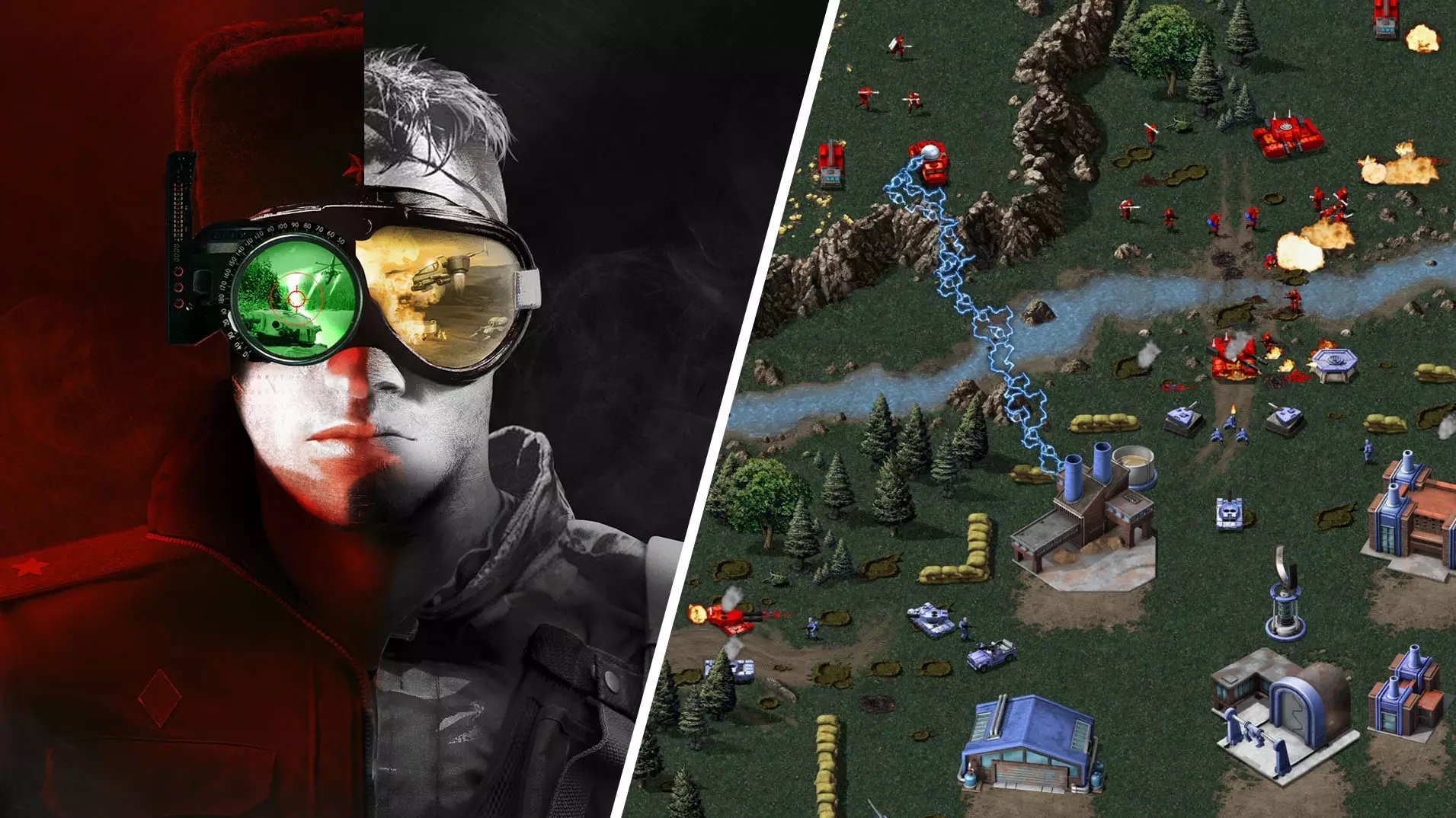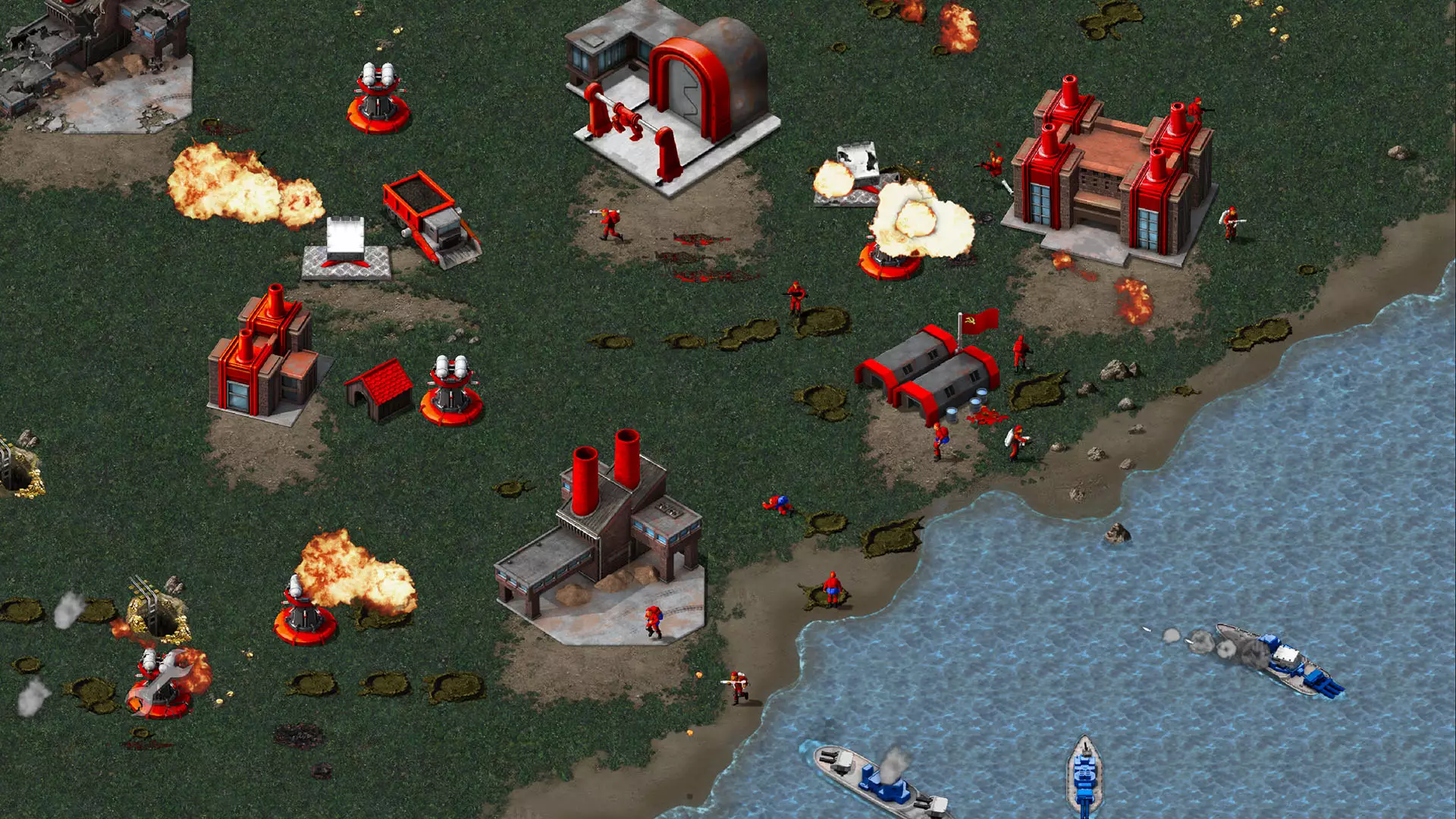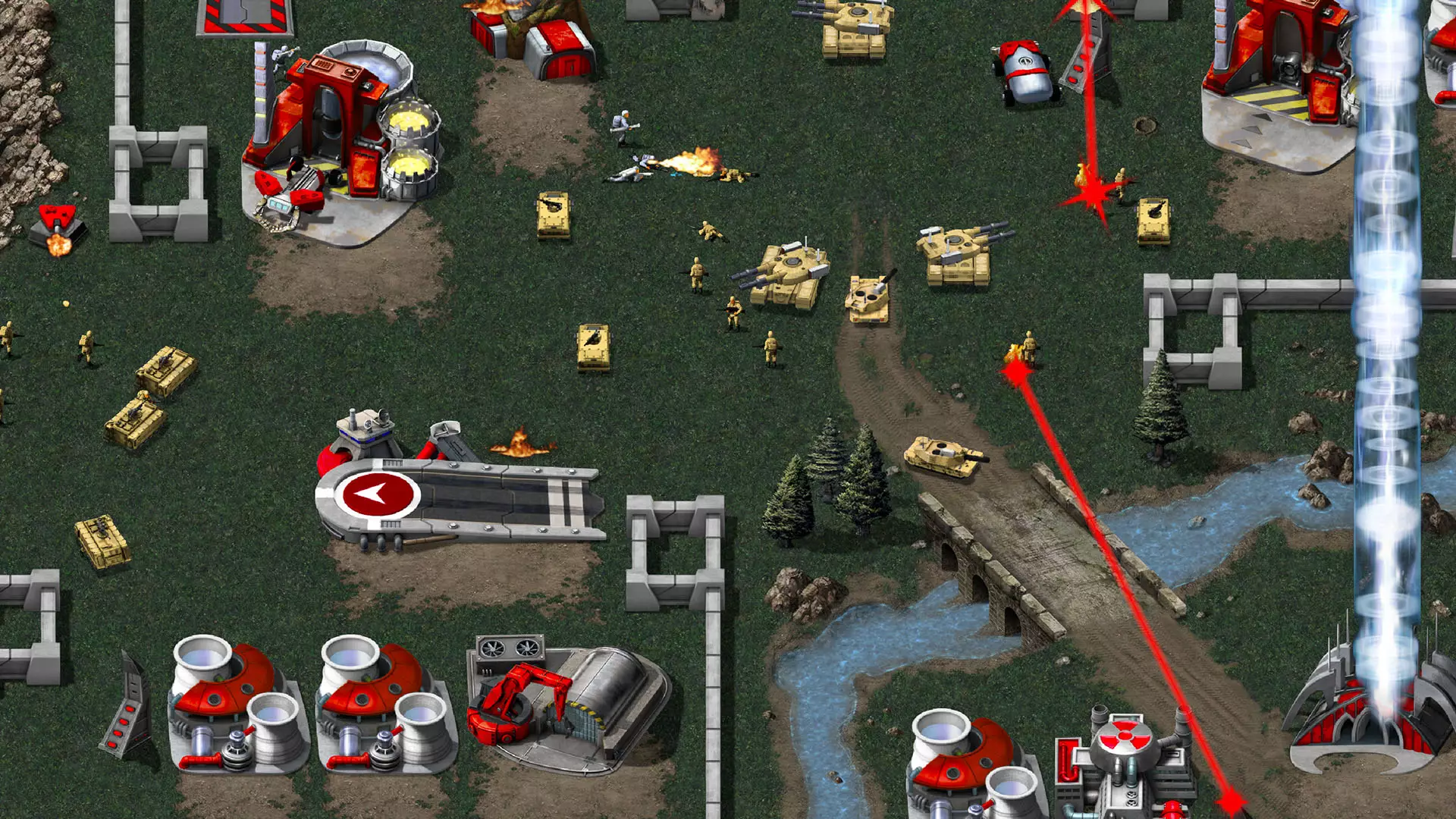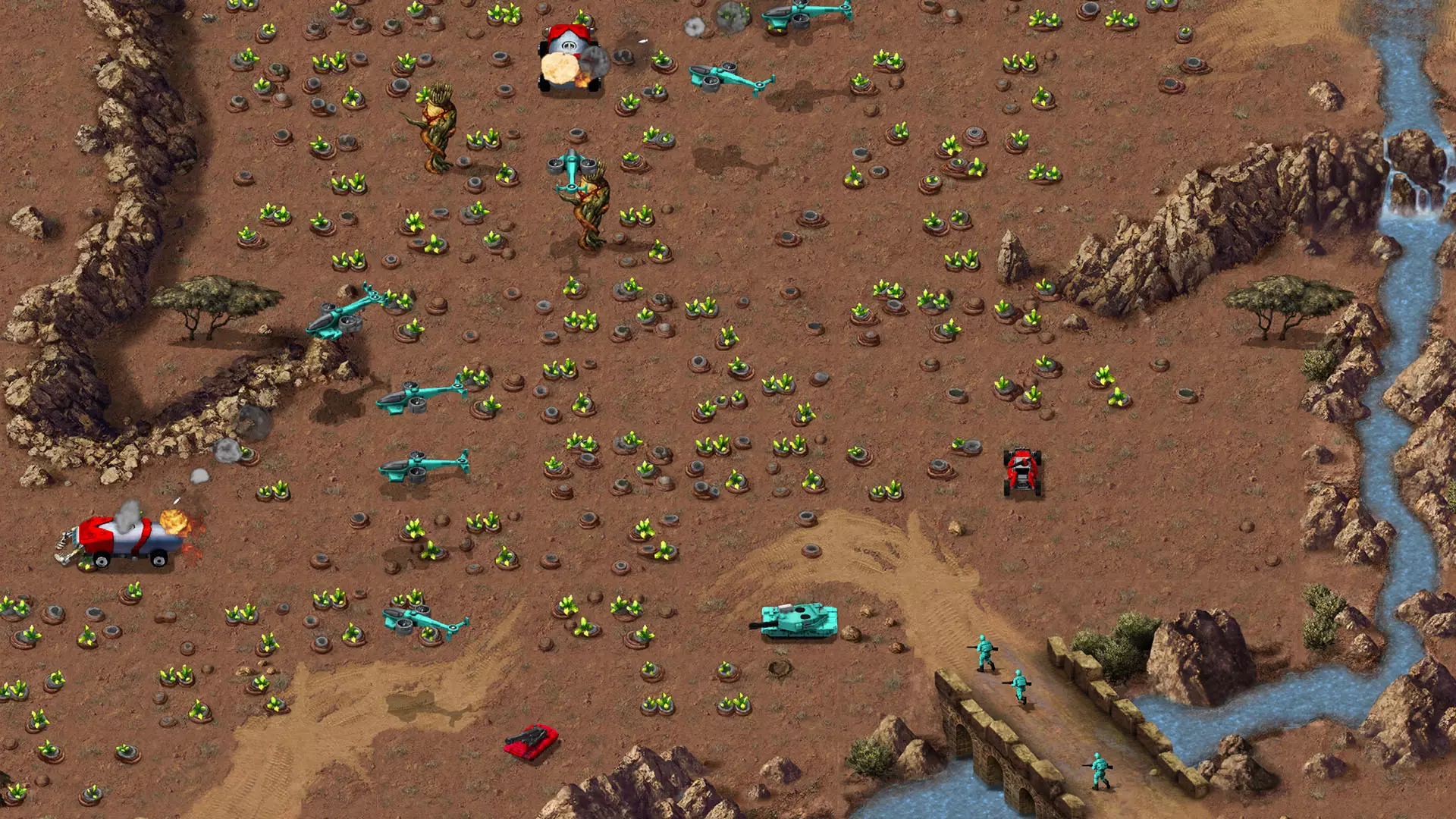
Ahead of the launch of the Command & Conquer Remastered Collection we got to speak with the series' composer Frank Klepacki. Starting at Westwood Studios in the '90s as a tester and working his way into the audio department where he became a composer, Klepacki defined the sound of Command & Conquer with industrial and heavy metal scores.
However, of all the music Klepacki's composed for the series, the best of it all is Hell March, the title track for Red Alert. We talk about how he stated on the series, composing that famous track, and the weird places it's cropped in gaming since.
What's it been like returning to this game after more than two decades?
Advert
It's been surreal, honestly. I never thought I would be returning to the original games once more, going through everything with a fine tooth comb. It's put me back in that headspace of being 20 years old again. It's really been a passion project on all sides. EA, Petroglyph, all of the original Westwood team, Lemon Sky Studios, it all came together in a way that felt right.
Our producer Jim Vessella has been instrumental in putting this together. He is as much a diehard C&C fan. It was clear to us that he wanted to do this the right way. He brought in a community council from day one, before the development even started, so they've been with us through the whole development process, able to have their voices heard in this. The fans got to be a part of the actual remastering experience with us. I couldn't ask for a better experience in that way.

Let's go back to the beginning, how did you start working at Westwood?
Advert
I started off as a tester when I was still in high school. It was like a summer job for me. It opened my eyes to game development and really sparked my interest in that field.I was already a professional musician, I was already performing live in Vegas in casinos with my parents. I was just starting to get into composition, learning other instruments, and learning software, and that came naturally to me. I befriended the audio director there, Paul Mudra, and we got to talking and I said 'Hey, if I can be of any help to you, you know, after I get out of high school, I'd be interested to see what's involved in audio'. He kind of gave me a trial period to learn what that entailed and I took to it like glue
How big was the team back then?
Well, there was the head of QA and I was kind of the only other tester, at least for that period. Although that grew substantially later. But it was a small company at that time. I mean, we had probably about 30 people or so. It was a very, very tight knit and development was very exciting. There was always something new around the corner; technology was improving at a rapid rate, consoles every other year were new and different. And we had to adapt and learn that stuff on the fly.

Advert
Westwood was working on a few different series then, how did you first hear about C&C?
Command & Conquer was a direct result of us having done Dune II. It was exciting because it was our original IP, we didn't have to licence anything. I was brought in after the design and concept was fleshed out - it was established as Command & Conquer, what the factions were going to be, and what the general overarching story was. I had started formulating some music ideas, but it really came about from a roundtable that we had.
Who was there?
It was myself, my audio director and the president of Westwood, Brett Sperry. Even though he wasn't a musician himself, Brett was very passionate about the whole creative process, including the music and soundtrack. He was very vocal about wanting to experiment so the three of us sat in a room and just listened to a lot of completely different music, saying 'What about this?', 'What about that?, 'What about just this piece of this song?', 'What about this particular album by this band, or this soundtrack from this movie?', and we just kind of sat and listened, and picked apart, and analysed, and took notes on [all this music] and threw all of that onto a cassette. I took that and started running with it and I was encouraged to just experiment. That's why Command & Conquer has such a diverse soundtrack; there is a bit of orchestral, there's a bit of industrial, there's heavy metal, there's synth, there's hip hop, there's all kinds of stuff.
Advert

The soundtrack for Red Alert was a lot more focused, and the real stand out track is Hell March. How did that piece come about?
I wrote that song in one day. I woke up in the morning and thought to myself 'You know what would be really awesome, to write a song to the sound of marching boots to the beat of marching soldiers'. I pulled up whatever samples I could find of marching and then I just picked up the guitar and the first thing I played was the riff. It just came to me, just channelled through me that day.
And this was before you knew Red Alert was a prequel?
Advert
Yeah, when Brett came in a couple days later I played him Hell March And he listened to and he said 'Man, this song is awesome, this needs to be the title theme'. Then he explained to me after the fact that we were doing this Allies vs Soviet-themed alternate timeline thing. It made me rethink what I was going to do with the soundtrack, I went back into experimentation mode and tried a bunch of different stuff, but the end result was more cohesive. We had decided that we wanted to really focus on the strength of the modern style I'd established with C&C but refined for Red Alert.
It was such a definitive track, it's become this part of gaming outside of C&C
It's taken on a life of its own, like it's been a part of so many video memes over the years. People just keep reusing it for stuff, whether it's other countries' demonstrations or Pokemon parades, I've seen it used in so many ridiculous ways. It's its own thing now.
I feel very fortunate to have been chosen in that way because, back then, I had no clue whatsoever about the passion that video game fans, or the sort of connection that could be possible with video game music. The idea of soundtracks to games being that important to people was a new idea to me. It didn't really kick in until I started to see the numbers of people that that making an effort to write me or to Westwood, and meeting fans at conventions and whatnot, it really started to open my eyes to the fact that this is a real community of people that are as passionate about this as anyone is about movies or bands That's been really endearing to me.
And, so, what now? Is this remastered collection tying up the series of a statement of intent for its future?
Well, I can't really speak to that at this time because I don't know. Our focus is to get this game launched, have everybody get out there and play it, and see what the response is. That will dictate what happens in the future. But, for now, we're just enjoying this moment. And I'm excited for the fans to also experience the soundtrack in its full HD quality. The fans have been asking for that from me for years. So I'm excited for that.
Thanks for speaking with us!